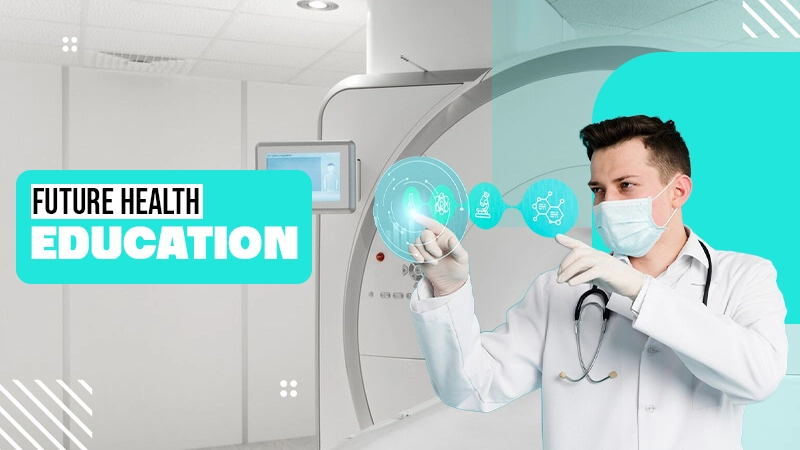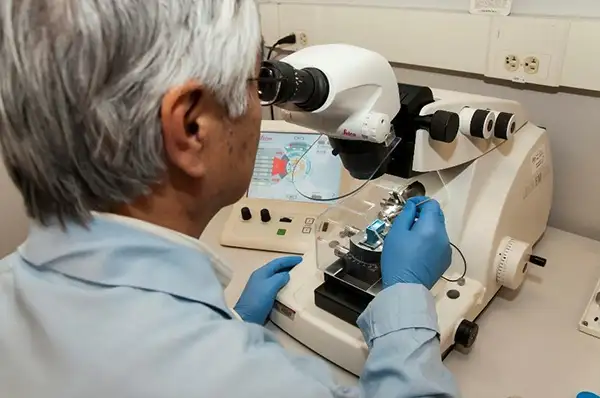
The world of healthcare is undergoing a remarkable transformation as technology continues to advance and reshape every aspect of human life. From artificial intelligence-driven diagnostics to virtual reality-assisted surgeries, technology has not only improved patient outcomes but also redefined the way future healthcare professionals learn and practice.
Health education, once limited to textbooks and clinical settings, has evolved into a dynamic, technology-driven discipline that prepares professionals to navigate the complexities of modern medicine. This integration of medicine and technology is not merely an upgrade in tools but a complete reimagining of how healthcare is taught, learned, and delivered.

The Growing Importance of Higher Education in Modern Healthcare
In today’s fast-paced world, healthcare professionals are expected to possess both clinical expertise and technological literacy. Pursuing higher education in health informatics or related fields provides a strong foundation for mastering this combination of skills.
Through advanced online MHI programs, learners gain a deep understanding of how data, digital tools, and healthcare systems integrate to improve patient outcomes. Online learning also offers valuable benefits such as flexibility and accessibility, allowing professionals to balance coursework with their careers while studying at their own pace.
Northern Kentucky University offers a wide range of online programs in business, healthcare, legal studies, technology, nursing, and other undergraduate areas designed to support career advancement. The university is accredited by the Southern Association of Colleges and Schools Commission on Colleges, ensuring that its programs maintain high academic and professional standards.
The Role of Technology in Modern Medical Learning
Technology has revolutionized medical education by transforming traditional learning models into interactive and immersive experiences. Medical students today can visualize human anatomy in 3D, simulate complex surgeries, and access vast online databases containing real-world case studies.
Virtual and augmented reality tools allow learners to practice procedures in risk-free digital environments, enhancing both their confidence and competence before entering clinical settings. These technologies not only make learning more engaging but also ensure that students acquire practical skills that can be directly applied to patient care.
Data and Digital Literacy: The Core of Future Healthcare
The increasing digitization of healthcare records and systems demands that medical professionals be well-versed in managing and interpreting data. Digital literacy is no longer optional—it is a fundamental requirement.
Future healthcare leaders must understand how to use data analytics to identify patterns, predict health trends, and improve patient outcomes. This knowledge empowers them to make informed decisions that are backed by evidence rather than intuition.
Health informatics has emerged as a crucial area within this new educational framework. Students trained in informatics learn how to design, manage, and evaluate systems that store and process medical information.
Artificial Intelligence and Personalized Learning in Medicine
Artificial intelligence is reshaping both healthcare and education. In medical learning, AI tools are being used to create personalized educational experiences tailored to each student’s strengths and weaknesses.
Adaptive learning systems analyze how students engage with materials and adjust the content accordingly to maximize understanding and retention. This individualized approach ensures that each learner can progress efficiently and effectively.
In clinical practice, AI assists in diagnostics, treatment planning, and predictive modeling, enabling healthcare professionals to provide personalized care based on patient-specific data.
Telemedicine and the Expansion of Practical Learning
Telemedicine has become a vital part of healthcare, especially in making medical services accessible to remote or underserved populations. Its impact on medical education is equally profound.
Through telehealth platforms, students can observe virtual consultations, interact with patients under supervision, and gain insights into the challenges of remote care delivery. This exposure enhances their ability to communicate effectively and empathize with patients, regardless of geographical barriers.
Additionally, telemedicine training teaches future healthcare providers the importance of technology in maintaining continuity of care.
Interdisciplinary Collaboration: The Future of Health Education
Bridging medicine and technology requires collaboration between multiple disciplines. Medical professionals must work alongside engineers, data scientists, and technologists to develop solutions that enhance patient care.
Modern health education programs emphasize teamwork and interdisciplinary projects that simulate real-world healthcare environments. This approach encourages students to think beyond traditional boundaries and to appreciate the value of diverse perspectives in problem-solving.
Collaborative learning environments also cultivate leadership and communication skills, both of which are essential in managing integrated healthcare systems.
Ethical and Humanistic Dimensions of Tech-Driven Healthcare Education
While technology has brought immense benefits to healthcare education, it also raises important ethical considerations. The use of data, artificial intelligence, and digital simulations must always align with principles of privacy, fairness, and compassion. Modern health education emphasizes the importance of maintaining empathy and ethical integrity even in the most technologically advanced settings.
Educators are now focusing on teaching students how to balance innovation with humanity. Understanding the emotional and psychological needs of patients remains central to medical practice, regardless of how advanced the tools become.
The Path Forward
The merging of medicine and technology represents more than just an academic evolution; it marks a cultural shift in how society perceives healthcare. As digital transformation continues to redefine the industry, education must remain adaptive and forward-thinking. Institutions are now focusing on producing professionals who are not only skilled in clinical practice but also capable of leading innovation in a data-driven world.